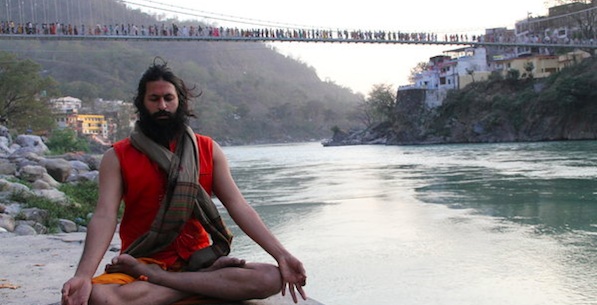Despite the physical absence of its founder, there was much to enjoy at last month’s Ebertfest, with the presence of Roger Ebert profoundly felt throughout. There was the majestic wonder of seeing Terrence Malick’s Days of Heaven projected on the enormous screen of the historic Virginia Theater; the delight of witnessing a full house of 1500 viewers discover Patrick Wang’s buried diamond In the Family; and the gonzo audacity of Randy Moore’s Escape from Tomorrow, a psychosexual phantasmagoria filmed secretly inside Disney World. These films were all hand-picked by Ebert before his passing, and each conveyed some facet of his larger-than-life persona and endless interests, whether it be art or society, the sacred or the profane.
There were as many memorable moments off-screen, and all highly interactive, from the opening night sing-along of “Those Were the Days” to Tilda Swinton leading a conga line through the Virginia Theater to the sexy crooning of Barry White. But for me the most beguiling moment came at the end of the Q&A session following the screening of Kumaré, a seemingly prankish but earnest investigation of New Age spirituality, directed by Indo-American Vikram Gandhi. Gandhi, who grew up in New Jersey as a lifelong skeptic of religious ritual, impersonates a yoga guru to investigate America’s fascination with South Asian spiritual culture. He attracts a considerable following of devoted disciples who don’t suspect that his thick South Asian accent and elaborate regimen of chants and rituals are all contrived.
Kumaré is a film that explores the uneasy relationship between the surface and the substance of spirituality, and I found myself contending with the film itself in terms of what lay on its surface and what substance could be found underneath. It tells its story in a somewhat gimmicky reality TV show manner that would seem to undermine any earnest engagement with spiritual world from the onset. However, as the fraud progresses, moments of genuine connection and feeling between Kumaré and his followers emerge. If these spiritual travelers find fulfillment along their journey, does it matter if the path is bogus?
These issues came alive even more vividly at the end of the Q&A, when an audience member asked for Gandhi to go back into character as Kumaré and lead the audience in an impromptu meditation session. Without reservation, Gandhi shifted back into character; the rest can be seen in this video recording of “The Ebertfest Kumare Meditation Session.”
What do I find so remarkable about this video? See if you can pinpoint the moment where the theater shifts from treating the experience as a joke to something more profound, even poetic and genuinely soul-nourishing. At least that’s how the moment played for me. I was truly impressed by how readily Gandhi-as-Kumaré could summon a meditative mood with a set of simple commands and images. The visuals he conjured could be construed as absurd, creepy, even horrific: a blue light in your brain being pushed out through a tube with every breath, pouring itself into a bowl of blue liquid. But with a strong, soothing voice conveying utter conviction, the words had a transcendent, otherworldly quality.
It was only when his producer/accomplice Stephen Feder took over the proceedings that giggles of incredulity returned to the theater. However ambivalent or contradictory Gandhi’s relationship is to his shaman identity, there’s no denying he has talent. He could seriously make bank as a yoga instructor as a way to fund future film projects—that’s something not every indie director can claim.
PS: See if you can spot renowned film scholar David Bordwell in the theater.
Kevin B. Lee is a filmmaker, critic and video essayist. Follow him on Twitter.




